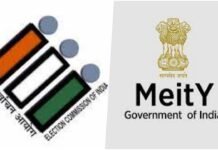
Key Points
- DPDP Rules, 2025, notified on November 13, officially operationalizing India’s Digital Personal Data Protection Act, 2023
- Data Protection Board of India became operational on November 14, 2025, as first digital-only regulatory body with online complaint filing system
- Companies must report data breaches to users and Board within 72 hours, maintain security logs for one year minimum
- Platforms with 20 million e-commerce users or 5 million social media/gaming users must delete inactive user data after three years with 48-hour notice
- Consent Manager framework launches in November 2026, organizations have until May 2027 for full compliance with core operational rules
- Penalties up to ₹250 crore per violation for non-compliance, with appeals to TDSAT (Telecom Disputes Settlement and Appellate Tribunal)
New Delhi: India’s Digital Personal Data Protection Rules, 2025, were officially notified by the Ministry of Electronics and Information Technology (MeitY) on November 13, 2025, marking a watershed moment in the country’s digital governance. The rules operationalize the DPDP Act, 2023, which Parliament enacted on August 11, 2023, but required comprehensive implementing regulations to become functional. Together, the Act and Rules establish India’s first dedicated legal framework for digital privacy, grounded in seven core principles: consent and transparency, purpose limitation, data minimization, accuracy, storage limitation, security safeguards, and accountability.
The framework follows the SARAL (Simple, Accessible, Rational, and Actionable) design philosophy, using plain language and illustrations to support ease of understanding and compliance for both citizens and organizations. This approach distinguishes India’s data protection regime from more complex international frameworks, positioning it as a citizen-focused and innovation-friendly model that balances privacy rights with economic growth.
Data Protection Board Begins Operations
The Data Protection Board of India (DPBI) became operational on November 14, 2025, functioning as India’s first fully digital regulatory institution. The Board enables citizens to file and track complaints online through dedicated platforms and mobile applications, promoting transparency, efficiency, and ease of access. The DPBI will comprise four members appointed by MeitY, though member selection was still underway as of the notification date.
The Board possesses significant enforcement powers, including the authority to impose penalties up to ₹250 crore per instance for violations of the DPDP framework. Appeals against Board decisions lie with the Appellate Tribunal, specifically TDSAT (Telecom Disputes Settlement and Appellate Tribunal), ensuring judicial oversight of data protection matters. Citizens must first file grievances with the Data Fiduciary (the organization handling their data) and can escalate complaints to the Board only if unresolved within 90 days, an approach designed to reduce regulatory burden while ensuring organizations maintain effective grievance redressal mechanisms.
Strict Consent And Transparency Requirements
Under the DPDP Rules, 2025, Data Fiduciaries (organizations handling personal data) must issue standalone, clear, and simple consent notices that transparently explain the specific purpose for which personal data is being collected and used. Companies are required to obtain explicit, informed consent before collecting any personal data from users, and this consent must be granular, allowing users to agree or disagree with specific data processing activities.
Users possess the unqualified right to withdraw their consent at any time, and companies must acknowledge and act upon withdrawal requests immediately. The framework specifically mandates verifiable parental consent for processing children’s data, representing a major change to prevent data misuse involving minors. For persons with disabilities who cannot make legal decisions, consent must come from lawful guardians verified under applicable laws, ensuring protection for vulnerable populations.
The Consent Manager framework, scheduled to launch in November 2026, will create a new ecosystem of registered entities that help individuals manage their permissions across services. Consent Managers must be Indian companies meeting technical and security standards set by the Data Protection Board, providing centralized control for users to grant, modify, or revoke consent across multiple platforms.
Comprehensive Security Safeguards Mandated
The DPDP Rules, 2025, enforce stringent security requirements throughout the data lifecycle, mandating that Data Fiduciaries implement appropriate technical and organizational measures. Organizations must deploy advanced security protocols including data encryption, masking, obfuscation, tokenization, access controls, activity logs, and regular backups to prevent breaches and ensure business continuity. Companies are required to preserve their security logs and traffic data for at least one year to enable effective breach detection and investigation.
In the event of any data breach, companies face a dual intimation requirement: immediate notice to affected users with details on the breach, its consequences, and mitigation steps, followed by an initial report to the Data Protection Board immediately upon becoming aware of the breach. A detailed breach report must be submitted to the Board within 72 hours, providing comprehensive information about the incident, affected data categories, the number of impacted users, and remedial measures taken.
Expanded User Rights And Data Control
The DPDP framework reinforces four fundamental rights for individuals: the right to access their personal data, correct inaccuracies, erase data when no longer needed, and nominate another person to exercise these rights on their behalf. Data Fiduciaries must respond to all such requests within a maximum of 90 days, establishing clear accountability for user data management.
Organizations can only collect data essential for stated purposes, with excessive or irrelevant data collection constituting a violation of the data minimisation principle. The framework introduces strict data retention limits, prohibiting companies from storing personal data longer than necessary for the specified processing purpose. If a user remains inactive for three consecutive years, companies must provide at least 48 hours’ notice before deleting their data, giving individuals the opportunity to access, correct, or reactivate their accounts.
Significant Data Fiduciary Obligations
Large platforms face enhanced compliance requirements under the Significant Data Fiduciary (SDF) classification. E-commerce platforms with more than 20 million (2 crore) registered users, social media intermediaries with over 20 million users, and online gaming companies with more than 5 million (50 lakh) users automatically fall under this category. These organizations must delete personal data of inactive users after three consecutive years, fundamentally transforming how digital businesses approach data retention and user engagement strategies.
SDFs must appoint dedicated Data Protection Officers, conduct mandatory annual Data Protection Impact Assessments (DPIA), and perform regular audits of their data processing activities. They are obligated to ensure their algorithmic and technical measures for hosting, sharing, and storage do not harm user rights. Where the Central Government notifies specific data categories, SDFs must comply with data localisation requirements, restricting transfer of such data outside India.
Cross-Border Data Transfer Framework
The DPDP Rules establish clear provisions for cross-border data transfers, allowing Data Fiduciaries to transfer personal data outside India unless the Central Government restricts transfers to specific countries or territories. When transferring data to foreign governments or government-controlled entities, companies must follow additional security guidelines and compliance measures. This balanced approach enables international data flows necessary for business operations while preserving the government’s ability to protect citizen data from jurisdictions with inadequate protection standards.
The framework does not mandate blanket data localisation, distinguishing India’s approach from more restrictive models, but reserves the right to require localisation for specifically notified sensitive data categories. This flexibility positions India as a destination for data-driven businesses while maintaining sovereignty over critical citizen information.
Phased Implementation Timeline
The government has adopted a strategic phased rollout spanning 18 months to allow organizations smooth transition while establishing enforcement mechanisms. The implementation schedule divides rules into three categories with distinct commencement dates:
Immediate Effect (November 13, 2025): Rules 1, 2, and 17-21 covering initial provisions, governance structures, and Data Protection Board appointments became operational immediately upon publication.
One-Year Timeline (November 2026): Rule 4, establishing the Consent Manager registration framework launches in November 2026, allowing time for the ecosystem to develop and entities to seek registration.
Eighteen-Month Timeline (May 2027): Rules 3, 5-16, 22, and 23 covering core operational and compliance requirements including consent mechanisms, security safeguards, user rights, breach reporting, and data retention become fully enforceable by May 2027. Data Fiduciaries must disclose their Data Protection Officer details by this deadline.
This graduated approach provides adequate transition time for organizations to update systems, train personnel, and implement necessary technical and organizational measures while ensuring fundamental protections begin immediately.
Facilitative Compliance For Startups
The DPDP framework seeks to strike a careful balance between protecting citizens’ privacy and promoting innovation and growth. The Rules provide a facilitative compliance regime specifically designed for startups and smaller enterprises, ensuring that innovation can continue to thrive alongside strong data protection standards. The technology-neutral approach avoids prescribing specific solutions, allowing organizations flexibility in implementing security measures appropriate to their scale and operations.
This design philosophy reflects India’s ambition to build a data governance model that encourages economic development while safeguarding citizen welfare, distinguishing the Indian approach from more prescriptive international frameworks. With simplified rules, adequate transition time, and scalable compliance requirements, the DPDP Act and Rules aim to strengthen privacy, enhance trust, and support responsible innovation.
Global Competitiveness And Trust Building
The notification of DPDP Rules, 2025, positions India’s digital economy as secure, resilient, and globally competitive. By establishing clear obligations for organizations while empowering citizens with enforceable rights, the framework builds trust in India’s digital ecosystem, essential for the sustained growth of the technology sector. The operational data protection regime transforms India from a policy commitment to a functioning system that demonstrates responsible data governance to international partners and businesses.
As India’s digital economy continues rapid expansion, this comprehensive framework establishes the country as both a destination for data-driven businesses and a champion of citizen privacy rights. The DPDP Rules translate constitutional privacy principles recognized by the Supreme Court into practical, enforceable protections that affect everyday digital interactions of over a billion citizens. The framework represents India’s commitment to digital sovereignty, ensuring that as technology evolves, citizen rights remain paramount in the nation’s digital transformation journey.














































